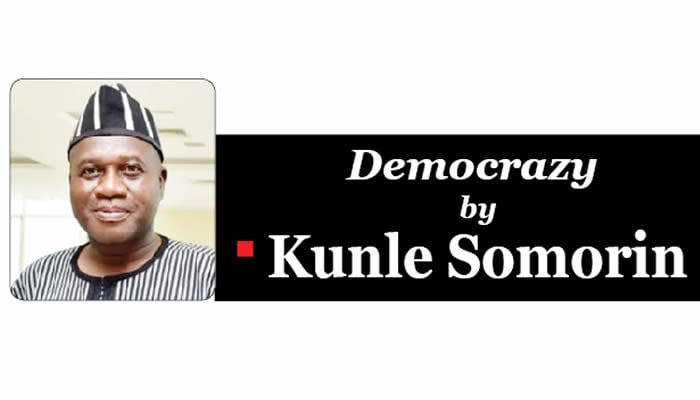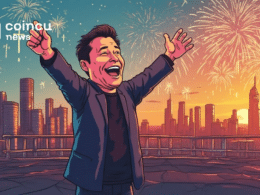There is a kind of miracle that does not announce itself with fireworks or fanfare. It does not wear medals or make headlines. It simply endures. It survives the storm, outlasts the silence, and wakes up each morning with the stubbornness to try again. In the next 48 hours, we will celebrate such a miracle in Nigeria. The miracle of wobbling, stumbling, crawling and yet hoping. A stunted giant, renewing hope after yet another hope betrayed.
At 65, Nigeria is not a finished product. It is a work-in-progress, a mosaic of contradictions, a symphony of unresolved chords. But it is also a marvel of endurance – a nation that has refused to die, refused to fracture, and refused to forget how to hope. To understand Nigeria is to understand complexity. It is not a country you can summarise in a sentence. It is a novel still being written, a dance still being choreographed, a prayer still rising from the lips of millions. Its story is not linear. It is layered – woven with threads of joy and grief, brilliance and blunder, promise and peril. Yet, amid it all, something extraordinary persists. Nigeria is still here. And that, in itself, is a triumph.
Psychologists speak of grit – the ability to persevere in the face of adversity. Nigeria has it in abundance. From the ashes of civil war to the turbulence of military rule, from economic meltdowns to electoral drama, the Nigerian spirit has remained unbowed. It is not naive optimism. It is earned resilience. The average Nigerian wakes up to uncertainty and still dares to dream. The market woman in Onitsha, the mechanic in Kaduna, the teacher in Abeokuta, the tech entrepreneur in Yaba – they all carry the weight of a nation on their backs, and still find ways to laugh, love and live.
There is a psychological genius in this. A refusal to be defined by dysfunction. A capacity to find meaning in chaos. A talent for turning scarcity into creativity. Nigerians do not just survive – they innovate. They do not just endure – they adapt. They do not just complain – they create. We are not the happiest people on earth because we have everything. We are happy because we know how to find joy in anything. We laugh in traffic. We dance at funerals. We turn pain into poetry. We turn struggle into style.
Nigeria is not one thing. She is many things, all at once. She is Igbo, Hausa, Yoruba, Tiv, Kanuri, Ijaw, Nupe, Efik, and hundreds more. It is Christian, Islamic, and traditional spirituality. It is pidgin and poetry, proverbs and programming. It is the tension of difference and the beauty of diversity. This plurality is not a weakness. It is a philosophical strength. It forces negotiation. It demands empathy. It teaches coexistence. In a world increasingly polarised, Nigeria remains a living experiment in pluralism – messy, imperfect, but profoundly human.
Our music blends dialects. Our food fuses cultures. Our fashion borrows from tribes. Our humour transcends boundaries. We fight, yes. But we also forgive. We argue, but we also accommodate. We are not a melting pot – we are a mosaic. And every piece matters.
Nigeria’s genius is often quiet. It does not always wear suits or speak in boardrooms. Sometimes, it sells akara by the roadside. Sometimes, it writes code in a cybercafé. Sometimes, it dances in the rain at a wedding in Owerri. Sometimes, it builds a drone from scrap metal in Zaria. We are a nation of thinkers, dreamers, hustlers, and healers. Our literature has won a Nobel Prize. Our music fills stadiums across continents.
Our films are watched in languages we do not speak. Our startups are solving problems Silicon Valley cannot imagine. Our diaspora is shaping global policy, medicine, and academia.
And yet, the real genius is at home – in the resilience of the farmer who finds new ways to irrigate, the student who studies by candlelight, the mother who feeds five children on a shoestring budget, the youth who turns a phone into a business. This is not just survival. It is brilliant.
As Nigeria turns 65, we must remember the giants whose shoulders we stand on – not to romanticise the past, but to inspire the future. Chief Obafemi Awolowo governed Western Nigeria without oil revenue and built a civilisation. He founded industries, schools, hospitals, and media houses. He paid the highest civil service salaries. He created jobs. He empowered youth. He laid foundations that still stand today. Dr Nnamdi Azikiwe, the philosopher-king, used the power of the press to awaken a generation. He built bridges of dialogue, institutions of learning, and a vision of pan-African unity that still echoes across the continent. Sir Ahmadu Bello, the Sardauna of Sokoto, modernised the North with agricultural revolutions, administrative reforms, and a commitment to education that transformed generations.
These were not perfect men. But they were purposeful. They did not govern with billboards. They governed with blueprints. They did not campaign with oaths. They campaigned with ideas. They did not install successors. They inspired generations. Today, their names are invoked – not to honour their legacy, but to con the citizens. Their portraits hang in government houses run by men who cannot spell “vision”. Their speeches are quoted by politicians who cannot build a classroom. Their ideals are paraded by parties that practise the opposite. But their legacy endures. And it calls us higher.
Nigeria is not short of heroes. They walk among us. Ngozi Okonjo-Iweala rose from the classrooms of Nsukka to the helm of the World Trade Organisation, proving that intellect and integrity can coexist. Chimamanda Ngozi Adichie’s pen has become a sword – cutting through stereotypes, elevating African narratives, and inspiring a generation of writers. Aliko Dangote built an industrial empire from scratch, proving that African enterprise can compete globally. Mitchell Elegbe, founder of Interswitch, turned a fintech idea into a billion-dollar company that powers digital payments across Africa. Fela Anikulapo-Kuti, Sunday Adeniyi-Adegeye, Oliver de Couque and later Tems, Burna Boy, and Davido have made music a global language – exporting Nigerian rhythm, resilience, and rebellion to the world. Tobi Amusan sprinted into history with grace and grit. Dr Ameyo Adadevoh gave her life to stop Ebola, reminding us that heroism is not in titles, but in sacrifice.
These are not just names. They are torches. And they are lighting the path for the succeeding generation. That generation must not inherit our cynicism. They must inherit our courage. They must not inherit our corruption. They must inherit our creativity. They must not inherit our tribalism. They must inherit our plurality. They must not inherit our despair. They must inherit our discipline. They must not inherit our politics. They must inherit our principles. They must not inherit our rituals. They must inherit our reason. They must not inherit our Kenimani (let others not be equal to me): our unaltruistic spirit of greed, vanity, and of corrupt materialism. They must inherit our kindness. Because Nigeria is not just a country. It is a calling. And every generation must answer.
Hope in Nigeria is not a cliché. It is a discipline. It is the act of believing in tomorrow when today feels broken. It is the courage to vote, protest, build, teach, heal and stay. It is the refusal to give up on a country that sometimes feels like it has given up on itself. But Nigeria has not given up. It is still birthing new dreams. It is still raising new leaders. It is still writing new chapters.
Even in recent years, that stubborn miracle has found new expressions. Under former President Muhammadu Buhari, Nigeria saw the completion of long-awaited infrastructure: the Second Niger Bridge, the Lagos-Ibadan and Abuja-Kaduna rail lines, and the Lekki Deep Sea Port – each a symbol of connection and commerce. His administration’s social investment programmes reached millions, offering lifelines to the vulnerable and empowering youth with skills and hope.
President Bola Ahmed Tinubu, inheriting both promise and pressure, has begun to chart his own course. His reforms – though painful – aim to stabilise the economy and decentralise development. Clearing foreign exchange backlogs, approving new medical universities, and launching regional development commissions are not just policy moves; they are signals of intent. The Lagos-Calabar Coastal Highway and Sokoto-Badagry Expressway stretch across the map like arteries of ambition. And Nigeria’s first trade surplus in decades whispers of a future that might yet be prosperous.
The youth are restless – but they are also resourceful. The elders are weary – but they are also wise. The middle class is squeezed – but it is also strategic, and our women are no longer confined to the kitchen and the other room. Let us not measure it only by its failures. Let us also count her triumphs – its music, laughter, resilience, plurality, genius and hope. Let us document it not as a tragedy, but as a testimony. Because one day, when the dust settles and the noise fades, history will look back and say: They did not give up. They kept building. They kept believing. And Nigeria became. Nigeria, you are not finished; you are just beginning.








